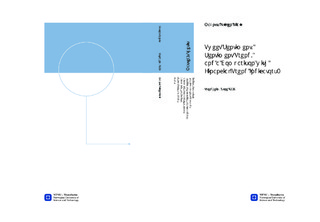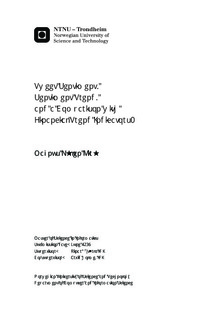| dc.contributor.advisor | Öztürk, Pinar | nb_NO |
| dc.contributor.advisor | Holme, Arvid | nb_NO |
| dc.contributor.author | Kirø, Magnus Løken | nb_NO |
| dc.date.accessioned | 2014-12-19T13:41:54Z | |
| dc.date.available | 2014-12-19T13:41:54Z | |
| dc.date.created | 2014-10-17 | nb_NO |
| dc.date.issued | 2014 | nb_NO |
| dc.identifier | 756639 | nb_NO |
| dc.identifier | ntnudaim:10013 | nb_NO |
| dc.identifier.uri | http://hdl.handle.net/11250/253880 | |
| dc.description.abstract | Background: As Twitter has become a global microblogging site, it s influ-ence in the stock market has become noticeable. This makes tweets an interest-ing medium for gathering sentiment. A sentiment that might influence trendsin the stock market.Motivation: If Twitter can be used to predict future prices in the stock mar-ket the casual investor would gain an advantage over the day-trader and themodern trading algorithms.Another interesting aspect is the role of Twitter in sentiment analysis. Andhow Twitters role as a data source influences trends in the stock market.Data and Experiments: Twitter is used as the data source. It provides easyaccess, lots of data, and many possibilities to use available metadata. To findthe sentiment of a tweet we use two methods, counting positive and negativewords(bag of words), and classifiers (SVM and Naive Bayes). We use movingaverage(MA) and average directional index(ADX) as trend indicators. We cal-culate MA and ADX with data from Oslo stock exchange, and we created ourown indicators, based on MA and ADX, using data from Twitter. Then wecompare the graphs.Findings: We explore the usage of lists of words, dictionaries, in sentimentanalysis. And we look at data retrieval from Twitter and the trend we cancreate from it. To a varying degree we get positive results with the dictionaries,while the trend aggregation lacks the finesse and results we hoped for.Conclusion: Sentiment classification of tweets worked with both bag of words,and trained classifiers. We also managed to aggregate a trend based on senti-ment, but we found no correlation between the financial trend indicators andthe sentiment indicators. | nb_NO |
| dc.language | eng | nb_NO |
| dc.publisher | Institutt for datateknikk og informasjonsvitenskap | nb_NO |
| dc.title | Tweet Sentiment, Sentiment Trend, and a Comparison with Financial Trend Indicators. | nb_NO |
| dc.type | Master thesis | nb_NO |
| dc.source.pagenumber | 106 | nb_NO |
| dc.contributor.department | Norges teknisk-naturvitenskapelige universitet, Fakultet for informasjonsteknologi, matematikk og elektroteknikk, Institutt for datateknikk og informasjonsvitenskap | nb_NO |

